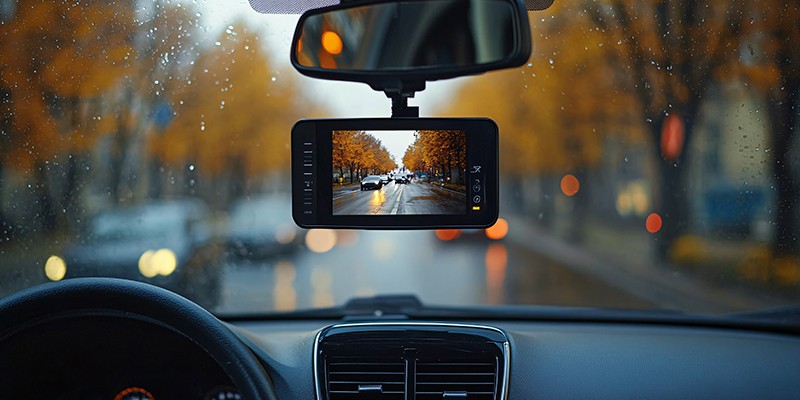Are Dashcams Worth It In 2025? Benefits, Key Features & What You Should Know
Are Dashcams Worth It In 2025? Benefits, Key Features & What You Should Know

Dashcams have become one of the most valuable car accessories for UK drivers — and not just for insurance claims. From protecting your no-claims bonus to recording unexpected moments on the road, these compact devices offer impressive peace of mind for a relatively low cost. But are they really worth the investment?
In this post, we’ll break down what dashcams do, the features you should look out for, and why they’re becoming a go-to accessory for both everyday drivers and businesses alike.
What Exactly Is a Dashcam?
A dashcam is a small camera, usually mounted to your windscreen or dashboard, that records video footage while you drive. Some are simple front-facing devices, while others offer rear-view, interior (cabin), or even 360-degree coverage. Most switch on and off automatically with your engine, and many models now come packed with high-tech features like night vision, GPS tracking, and even motion detection when parked.
Why More Drivers Are Using Dashcams
Here are just a few of the reasons drivers are choosing to install dashcams in their vehicles:
- They Offer Unbiased Evidence in an Accident
One of the biggest benefits of a dashcam is having reliable video proof if you're ever involved in a collision. This can make it far easier to resolve disputes and protect yourself from being unfairly blamed or falling victim to 'crash for cash' scams.
- Better Security, Even When Parked
Many dashcams now include a parking mode that activates if the car is bumped or tampered with. Whether it’s a hit-and-run in a car park or attempted theft, you’ll have the footage to back you up.
- Safer Driving Behaviour
Knowing your driving is being recorded tends to have a positive effect. It encourages safer driving habits—and in some cases, dashcam footage has even helped drivers identify and improve their own risky driving behaviour.
- Lower Insurance Premiums
While not all insurers offer this, some companies will give you a discount if you use a dashcam. It’s always worth asking your provider if they recognise dashcams as part of a safe driving policy.
- Recording Memorable Moments
Not every benefit is about safety. Dashcams can also be great for capturing scenic drives, unexpected events on the road, or even funny moments you might’ve missed otherwise.
What Features Should You Look For in a Dashcam?
With so many options out there, it’s easy to feel overwhelmed. The best dashcam for you will depend on how much driving you do, your budget, and the type of coverage you're looking for. Here are some of the most useful features to keep an eye out for:
- High Video Resolution: Look for at least Full HD (1080p), but if you want razor-sharp footage (especially helpful for reading number plates), 4K dashcams are now more widely available.
- Wide Field of View: A lens with a 140°–180° angle will capture more of the road – ideal for roundabouts, junctions, and busy urban driving.
- Parking Mode: Even when your engine is off, some dashcams continue to monitor for bumps, vandalism, or attempted theft.
- GPS and Speed Tracking: Handy for reviewing journeys and providing extra context in insurance claims.
- Wi-Fi & Smartphone Apps: These make it easy to review, download, or share clips directly from your phone.
- G-Sensor: If your vehicle is involved in a collision, the G-sensor will automatically save and lock the footage, so it’s not overwritten.
- Loop Recording: Automatically records over the oldest footage once your memory card fills up – so you’re never caught without storage.
Types of Dashcams – Which Is Right for You?
As mentioned earlier, dashcams come in a few different styles, depending on your needs.
- Front-only dashcams: The most common and affordable option. Great for general use.
- Front and rear dashcams: Capture both forward and backward footage—ideal if you're concerned about being rear-ended.
- Cabin-facing dashcams: Often used in taxis and private hire vehicles to monitor activity inside the car.
Some models even support dual lenses, night vision, or app integration for remote access and cloud storage.
Do Dashcams Work When the Car’s Off?
Yes, higher-end models can operate in “standby” mode while your car is off, recording if they detect movement or impact. This is especially helpful for catching dings in the car park or vandalism when your car is unattended.
How Much Does a Dashcam Cost?
You can pick up a basic dashcam for as little as £30, which will usually offer front-facing video at a lower resolution. These are great for casual drivers or anyone on a tight budget. Spend around £100–£150 and you’ll find options with Full HD video, dual cameras (front and rear), parking mode, and app integration. Premium units, often £200 and up, typically include 4K video, advanced safety features, GPS logging, voice control, and even driver alerts like lane departure warnings.
The good news? Even a mid-range dashcam can pay for itself with just one avoided claim or dispute.
Are There Any Downsides?
Dashcams are generally a smart investment, but it’s worth keeping a few things in mind:
- Installation needs to be safe – Make sure it doesn’t block your view of the road. Improper installation could lead to fines or accidents.
- Privacy considerations – If you're using a cabin-facing dashcam, passengers must be made aware they’re being recorded.
- Cost – Dashcams range from £30 to £400+, depending on the features. However, most drivers find the investment worthwhile for the protection they offer.
So, Are Dashcams Worth It?
In short—yes. For the relatively low cost of entry, dashcams provide an extra layer of protection and peace of mind. Whether you lease your vehicle or own it outright, having a dashcam could save you money, protect your no-claims bonus, and make dealing with claims much simpler.
